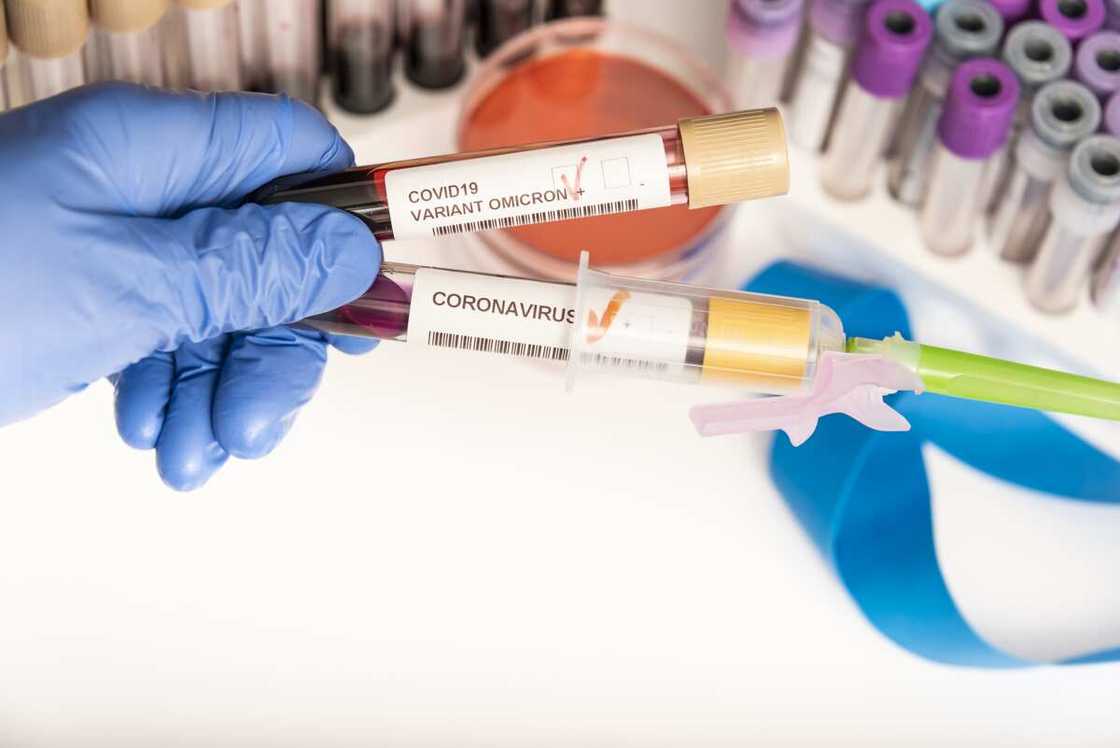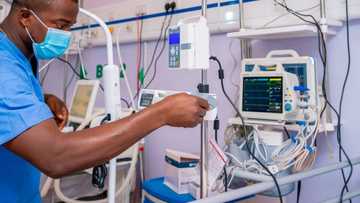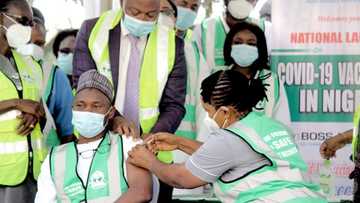Omicron: 5 Things to Know About New COVID-19 Variant Causing Anxiety
A new strain of the raging coronavirus has been detected. The World Health Organisation (WHO) on Friday, November 26, named the new COVID-19 strain B.1.1.529 as ‘Omicron’ and classified it as a variant of concern.
Health experts have expressed worry that its large number of mutations may pose a high risk of reinfection.

Source: Getty Images
Cases of the new variant have already been reported in South Africa, Botswana, Hong Kong, Israel, UK and Belgium.
The emergence of the new variant shows once again that the pandemic is far from over. Below is a list of the facts known about the variant of concern so far, according to the WHO:
1. Mutation profile of the new variant
The Network for Genomics Surveillance in South Africa (NGS-SA) detected a group of related SARS-CoV-2 viruses, which belong to a lineage named B.1.1.52
PAY ATTENTION: Join Legit.ng Telegram channel! Never miss important updates!
From what is known currently, B.1.1.529 has multiple spike protein mutations, and preliminary analysis suggests it is highly infectious.
2. Symptoms
The National Institute for Communicable Diseases (NICD) of South Africa said that currently there are “no unusual symptoms” that have been reported following infection with the B.1.1.529 variant.
NICD also highlighted the fact that, as with other infectious variants, some individuals are asymptomatic. There is currently no information to suggest that symptoms associated with Omicron are different from those from other variants.
3. Transmissibility
Early indications had shown this variant is possibly even more transmissible than the Delta variant, and that current vaccines may be less effective against it.
However, it is not yet clear whether Omicron is more easily spread from person to person compared to other variants of COVID-19.
Though the number of people testing positive has risen in areas of South Africa, epidemiologic studies are underway to understand if it is because of Omicron or other factors.
4. Severity of disease
At the moment it is not yet clear if infection with Omicron causes more severe disease compared to infections with other variants.
Initially reported infections were among university students (younger individuals) who tend to have more mild disease, however, understanding the level of severity will take days to several weeks.
5. Effectiveness of vaccines
WHO is working with technical partners to understand the potential impact of this variant on our existing countermeasures, including vaccines.
There are several actions recommended for countries to undertake as Omicron has been designated a variant of concern.
These measures include enhancing surveillance of cases, reporting initial cases or clusters to WHO, performing field investigations among others.
In light of this, the most effective steps to reduce the spread of the virus is to observe social distancing, avoid crowded spaces; keep hands clean, cough or sneeze into a bent elbow or tissue, and get vaccinated.
Canada detects 2 cases of Omicron COVID-19 variant from 2 travellers to Nigeria
Legit.ng previously reported that Canada on Sunday, November 28, disclosed that it has detected its first cases of the new Omicron strain of Coronavirus in two people who had travelled recently to Nigeria.
According to a report by The Punch, the government of Ontario confirmed that the two cases are in the capital, Ottawa.
Meanwhile, the Federal and Ontario provincial officials said both patients are in isolation while public health authorities trace their possible contacts.
Source: Legit.ng




